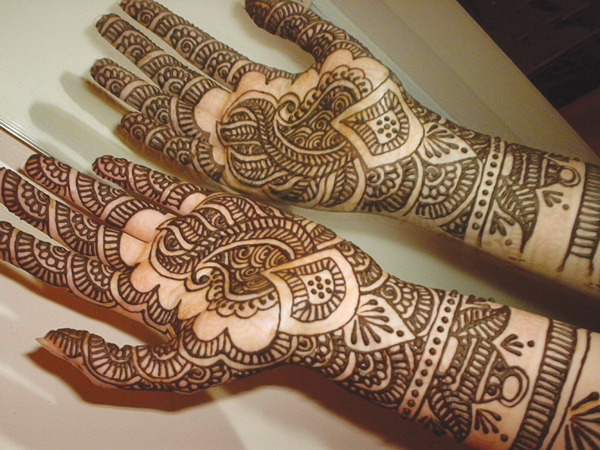U of O student relates her experience celebrating Eid al-Adha with family and neighbours
Photos courtesy of Kajahni Tharmarajan
This October, Muslims around the world celebrated Eid al-Adha, the “festival of sacrifice” that marks the biggest event in the Islamic calendar. The exact dates of Eid al-Adha reflect the lunar calendar and are determined by the local mosque. For Sarah Asad, a second-year master’s student in health systems, this year’s celebration started Oct. 15.
“It commemorates the sacrifices made by prophet Ibrahim—peace be upon him—when he was commanded by Allah, which means God, to sacrifice his only son at that time,” Asad explains. “Allah was very happy that (Ibrahim) kept his faith and as a result, left his son unharmed and left a goat in his place.”
Eid is a reminder that every life is sacred and of the responsibility humans have over animals. Usually a cow, sheep, or other livestock animal is sacrificed, blessed, and divided up to share with family, friends, and impoverished members in the community followed by prayers and large feasts.
Asad maintains her religious traditions with large social gatherings at her home, where family and friends in the neighbourhood are invited over for days of feasting, exchanging greetings, and socializing following Morning Prayer.
“I usually put henna on my hands, go shopping the day before, clean the house and cook lots of good food—kind of like Christmas,” she says. “The night piror to Eid, (my mother) made Sheer khurma, which is like vermicelli pudding. It’s a family tradition in our house to eat that dish every Eid.”
Asad explains that in her family her mom takes the initiative to share their traditional dishes with the neighbours who don’t necessarily celebrate Islamic holidays or know much about the culture. During Christmas, Asad’s neighbours return the gesture, sharing home-baked cookies and other holiday treats.
“We have a good sense of community because of that,” she said. “When you share food with someone, it’s like they are part of the family.”





